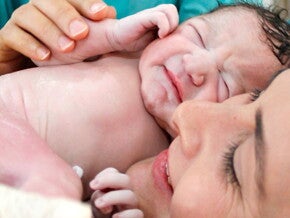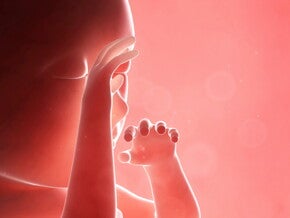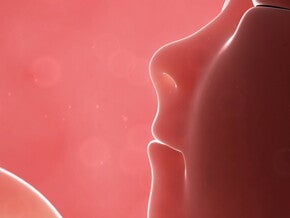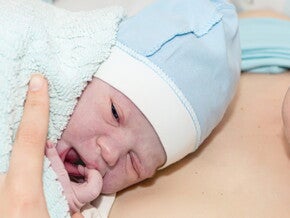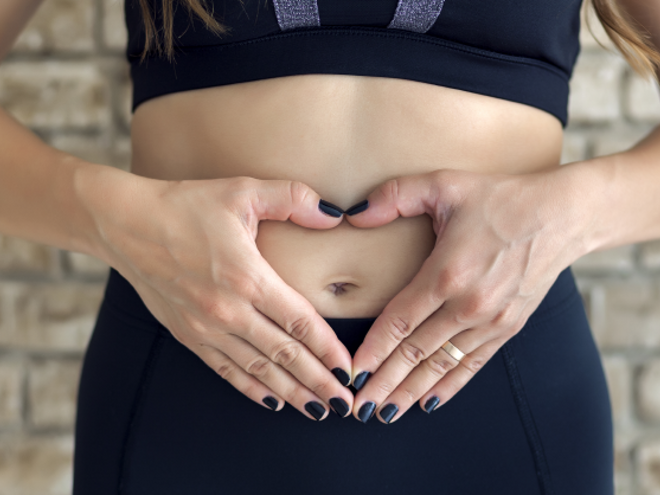
Weeks 1 & 2
Although the first two weeks are part of your pregnancy countdown, you are not technically pregnant. Your body is however working hard to prepare for that moment and it is counted as your first steps towards motherhood. An increase in oestrogen and progesterone prepares your body for your baby to live and grow.
3 Weeks
You’re pregnant. Congratulations!
Your uterus is now ready with a blood-rich lining. Erupting from your ovary, one of your eggs enters a fallopian tube, waiting to be fertilised by one of millions of sperm.
Once the sperm’s nucleus merges with that of the egg, if the sperm carries a Y chromosome, you can hope to welcome a little boy; if it carries an X chromosome, a little girl.
Over the next 8 months or so this single cell multiplies and goes through a number of stages to give you your bundle of joy! Once the two cells fuse, they form a zygote.
4 Weeks Pregnant
Your baby is now a part of you!
Implantation is when the tiny mass of cells attaches itself to you. A lot is happening inside your body now. A small ball of cells called the blastocyst is rapidly multiplying; producing hormones that help cease the menstrual cycle and keep the lining of the uterus from shedding. By the end of this week, a hormone called HCG can be detected, confirming your pregnancy.
Once implanted, this tiny mass of cells will divide further to become an embryo and the placenta. The placenta will provide your baby with all the oxygen and nutrients it needs and will link you and your baby until birth, when your baby can breathe and feed on its own.
Amniotic fluid begins to collect in the cavity that will become the amniotic sac and protect your baby through the entire journey until birth – by cushioning the embryo against your movements and by providing the growing embryo with nourishment through you.



